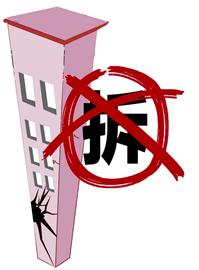Demolition law criticized as 'unconstitutional'
Scholars have opened fire on a new draft regulation amendment on the demolition of urban housing, saying a stipulation that permits the destruction of homes for "non-public interests" is in violation of the country's Constitution.
 |
|
Demolition law criticized |
Ma Guangyuan, a researcher with the Chinese Academy of Social Sciences, said this stipulation should be deleted as both the Constitution and the draft revision itself stipulate that "the government can only confiscate citizens' property for public interest".
The draft revision, which is progress from the original in that it emphasizes public interest, could be ruined by this single item, Ma said. This stipulation still authorizes the government to permit demolitions for non-public interests.
China's feverish real estate market has stoked developers' appetite for land. The existing regulation on urban housing demolition, allowing local governments to confiscate homes and claim land, has sparked growing violence and even prompted some protesters to set themselves on fire.
"If the new guidelines do not make real changes concerning this part, the draft revision is just a technical instead of a real change to the original one," said Wang Xixin, a professor from Peking University, who also disagrees with this stipulation.
Wang said the State Council Legislative Affairs Office had informed him that they would issue another regulation about demolishing for non-public interest. However, no date for its publication has been given.
"I suggested the deletion of this guideline too but they didn't do it," Wang said.
The law ought to make clear: You cannot confiscate land if the purpose behind it is not "public interest," Wang said.
"If non-public interest demolitions are specifically outlawed, then the property owner and the developer would have to work out a selling price between themselves, in a civil agreement, and the government would not even get involved. Government officials are not supposed to permit anything."
Also, the No 28 guideline was attacked as being unfair to house owners as it stipulates "those who disagree with the compensation deal can sue, yet during the lawsuit, the compensation could still be executed."
The original regulation permits forced relocation before compensation, and now they can also force relocation after paying money, said Jiang Ming'an, a law professor from Peking University.
 0
0 






